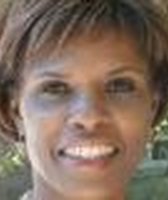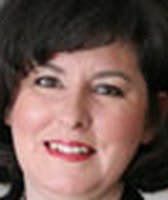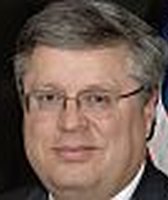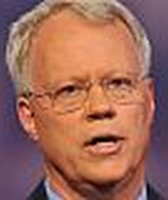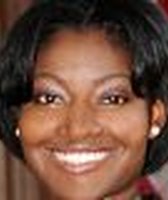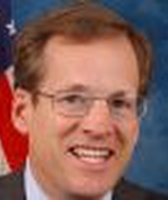Stand up for the facts!
Our only agenda is to publish the truth so you can be an informed participant in democracy.
We need your help.
I would like to contribute
Today ends a long -- and often annoying -- season of political ads, robocalls from famous politicians and glossy fliers sitting in mailboxes from someone who wants your vote.
PolitiFact Georgia decided to take a look back at a few claims about voting and elections that have been tested on the Truth-O-Meter this election cycle.
Below are abbreviated versions of these fact checks. Look for the complete versions at the PolitiFact online sites. Want to comment on Truth-O-Meter rulings? It's easy. Just go to our PolitiFact page: www.facebook.com/politifact.georgia?fref=ts. Readers can also follow us on Twitter at PolitiFactGA.
Georgia Democratic Party Chairman Mike Berlon: "We know there are more Democrats in Georgia than Republicans. We know that for a fact."
By most accounts, Georgia is as red politically as its famed clay. But Berlon doesn't agree.
"We know there are more Democrats in Georgia than Republicans. We know that for a fact," Berlon said in The Atlanta Journal-Constitution's Political Insider blog during the Democratic National Convention in Charlotte, N.C.. "The problem is, we don't win because of turnout."
It's been nearly 20 years since a Democratic candidate for president won the state, and all the elected statewide officials are Republican. Considering such dominance, what's the basis for claiming there are more Democrats in Georgia?
There's little concrete evidence that definitively shows which party has more voters since Georgia does not allow partisan voter registration.
The polling data says it's close, but election results and the most recent makeup of the Georgia Legislature suggest there are more Georgians who consider themselves Republicans.
PolitiFact Georgia gave Berlon a Mostly False.
NAACP: "Since 2000, only 10 cases of in-person voter fraud have been proven nationally."
The NAACP made this claim in a news release announcing its opposition to a plan in Pennsylvania to enact a voter identification law.
PolitiFact Georgia was curious about this one since Georgia is one of the states with voter ID laws on the books.
The NAACP's claim --- taken directly from a yearlong analysis by News21 --- is based on extensive analysis and data received from the actual elections officials in charge of handling these issues. News 21 is a Carnegie-Knight investigative reporting project staffed by college journalism students.
The Republican National Lawyers Association disagreed with the claim. But the RNLA's own research, alleging that more cases of fraud exist than the News21 claim, includes other types of election fraud, not just voter impersonation. Most experts agree, "in-person" fraud is rare.
The NAACP's claim appeared mostly accurate. There are a few missing pieces, however, in the data.
We rated the claim Mostly True.
U.S. Rep. Steny Hoyer, D-Md.: Says up to a quarter of African-Americans don’t have government photo ID.
Hoyer and U.S. Rep. John Lewis, an Atlanta Democrat, made this claim in a December 2011 op-ed published in The Austin (Texas) American-Statesman.
"New measures introduced in several states would mandate government-issued, current photo identification for all wishing to vote. However, as many as one in four African-Americans do not carry the necessary forms of identification to vote under these conditions and would be hit hard by these new laws," the op-ed said.
Our partners at PolitiFact Texas investigated.
The numbers came from a 2006 survey of Americans’ ownership and access to citizenship documents and identification by the Brennan Center for Justice at New York University’s School of Law.
Overall, according to the survey, 11 percent of voting-age Americans did not have current government-issued photo ID. Among African-Americans, 25 percent did not have such ID, compared with 8 percent of whites.
While other collections of data do not touch on exactly the same point, most indicate that African-Americans are less likely than whites to hold varied kinds of government-issued IDs, with percentages of blacks without such ID ranging from nearly 4 percent to more than 26 percent.
PolitiFact Texas rated the claim Mostly True.
Pennsylvania state Rep. Warren Kampf: Voter turnout for some groups in the 2008 presidential general election in Georgia "was far greater than it should have been demographically."
Kampf, a Republican, said this about black voters as he argued for Pennsylvania to pass identification laws similar to Georgia's targeting voter fraud .
In 2006, the Georgia Legislature required adults to produce picture ID when they vote in person. Some said it was an attempt by Republicans to discourage Democrats, particularly African-Americans, from voting.
In 2004, about 76 percent of black women and 66 percent of black men registered to vote in Georgia cast ballots in that year's presidential election, according to the Georgia secretary of state's website.
In 2008, those percentages rose by a few points, as did blacks' share of the electorate.
One big difference between those years: Barack Obama ran in 2008 and became the nation's first black president.
Black turnout in Georgia did increase. But turnout wasn't "far greater." Also, Kampf should have acknowledged Obama's role in the numbers.
Our rating: Mostly True.
Florida state Sen. Mike Bennett: Says people in Africa "literally walk two and three hundred miles" in order to vote.
Comedian Bill Cosby joked about walking 20 or 30 miles to school in the snow.
A Florida state senator said that’s nothing compared with the distance some Africans walk to cast their ballots. Or was that a tall tale?
"Do you read the stories about the people in Africa? The people in the desert who literally walk two and three hundred miles so they can have the opportunity to do what we do, and we want to make it more convenient?" Bennett, a Republican, said during a debate about voting laws there. "How much more convenient do you want to make it? Do we want to go to their house? Take the polling booth with us?"
Through a translator, PolitiFact asked a group of African elections experts who happened to be in Florida around the time Bennett made his statement. We didn't have to wait for the translation … we heard the laughter.
The maximum distance they said was about 3 miles. This claim deserved to take a hike. Pants on Fire!
Our Sources
See attached summaries.





